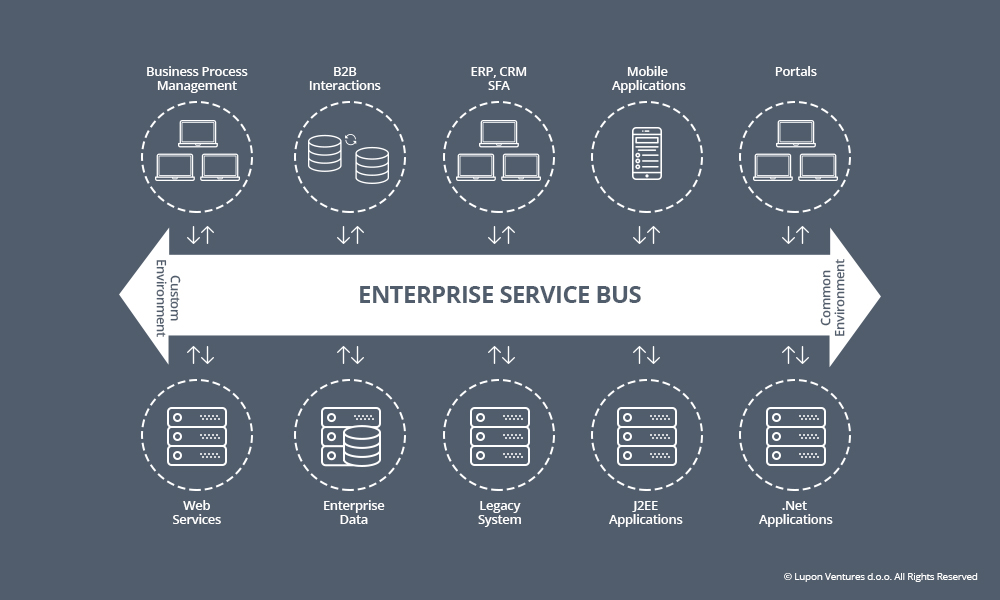An ESB transports the design concept of modern operating systems to networks of disparate and independent computers
An enterprise service bus (ESB) is a software architecture model used for designing and implementing communication between mutually interacting software applications in a service-oriented architecture (SOA). As a software architectural model for distributed computing, it is a specialty variant of the more general client server model and promotes agility and flexibility with regard to communication between applications. Its primary use is in enterprise application integration (EAI) of heterogeneous and complex landscapes.
An ESB transports the design concept of modern operating systems to networks of disparate and independent computers. Like concurrent operating systems an ESB caters for commodity services in addition to adoption, translation and routing of a client request to the appropriate answering service.
The primary duties of an ESB are:
- Monitor and control routing of message exchange between services
- Resolve contention between communicating service components
- Control deployment and versioning of services
- Marshal use of redundant services
- Cater for commodity services like event handling, data transformation and mapping, message and event queuing and sequencing, security or exception handling, protocol conversion and enforcing proper quality of communication service
With over a 100+ ready-made, easy to use connectors, the ESB provides greater flexibility and agility to meet growing enterprise demands. The cloud-enabled, multi-tenant ESB is also available on the cloud as a service (Private PaaS).

